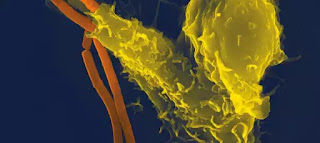Type 1 diabetes and celiac disease are closely related genetically, People with one disease tend to get the other. People who have type 1 diabetes autoantibodies should get screened for celiac autoantibodies. Type 1 diabetes is an autoimmune disease that causes the body’s immune system to mistakenly attack the insulin-producing cells in the pancreas, insulin is a hormone that sends the sugar from foods into the body’s cells to be used as fuel. Because the autoimmune attack leaves people with type 1 diabetes without enough insulin, they must replace the lost insulin through injections or an insulin pump with a temporary tube inserted under the skin.
Celiac disease is an autoimmune disease that causes the immune system to attack the lining of the small intestine when gluten is consumed, according to the Celiac Disease Foundation. Gluten is a protein found in wheat. Symptoms of celiac disease include stomach pain, bloating, diarrhea, vomiting, constipation, weight loss, fatigue, delayed growth and puberty.
Early diagnosis of celiac disease is important to initiate treatment with a gluten-free diet to prevent complications, particularly growth retardation in children. Other complications are iron-deficiency anemia, osteoporosis, skin rash lymphoma and carcinoma of the small intestine. Treatment for the disease is avoiding eating or drinking anything containing gluten.
The researchers carried out autoantibody test on many children and follow them up for 66 months. Autoantibodies linked to type 1 diabetes were found in some of the children while some have autoantibodies linked to celiac disease. Some of the children have both, the results showed the link between the two diseases, type 1 diabetes mellitus is a risk factor for the development of celiac disease.
haleplushearty.blogspot.com


